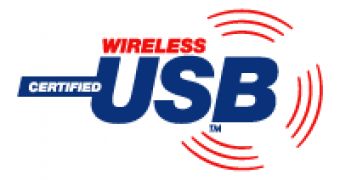The Universal Serial Bus is probably the most popular and widely used interconnect protocol in use today that can link a high number of peripherals to a host computer system and it comes in several versions, like the legacy iterations 1.0 and 1.1, the modern 2.0 iteration and the upcoming version 3.0. On the physical level, the Universal Serial Bus can be wired or wireless and it looks like the wireless version is gaining a lot of ground as the technology responsible for it becomes more and more affordable.
The Wireless USB Promoter Group is an industry association that is composed of a number of important software and hardware companies that are promoting and supporting the development of the new standard. Among the involved companies there are big names like HP, Intel Corporation, LSI Corporation, Microsoft Corporation, NEC Electronics Corporation, NXP Semiconductors and Samsung Electronics.
The promoting group just announced that they will soon start developing the technical specifications for the Wireless USB 1.1 standard that is expected to be built on the basis laid by the Wireless USB 1.0, while introducing a number of new features related to the first-time association of devices, improved power efficiency and support for UWB frequencies above 6Ghz. The most important feature of the new wireless connection standard will be the ease of use and the promoting group is confident that users will find the ''touch and go'' approach very simple.
Other technical aims of the new protocol include better power management and efficiency in order to increase battery life, UWB support for high communicating frequencies and the support for Near Field Communication capabilities that will automatically detect peripherals within a certain range from the computer. ''The Wireless USB 1.1 Specification builds on the key features - speed, ease of use, and security - that have made the 1.0 specification so successful,'' said Jeff Ravencraft, USB-IF president. ''The Wireless USB Promoter Group will define new features that make a great specification even better to improve product offerings for manufacturers and ultimately enhance the end-user experience.''
The Wireless USB Promoter Group expects that the technical specifications of the new interconnect protocol to be ready by the first half of 2008, while the hardware and software components will be tested and qualified as they are designed and manufactured.

 14 DAY TRIAL //
14 DAY TRIAL //